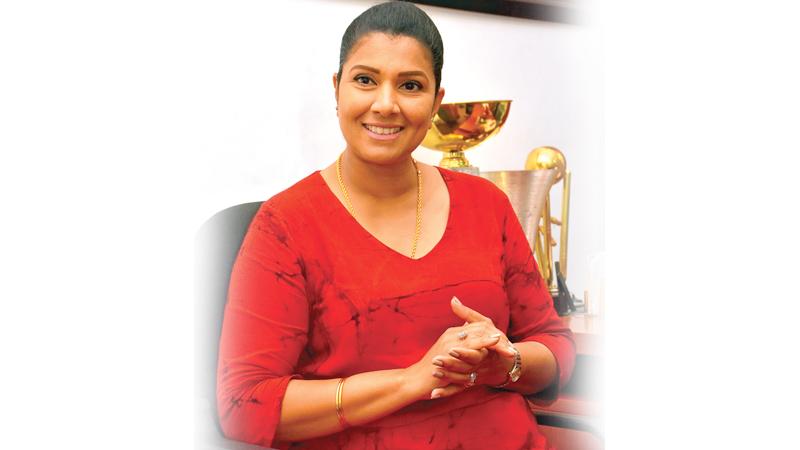
The national women’s cricket team, unlike the men’s, did not have a feeder system because there was no cricket played at the grassroot levels. Men’s cricket thrives even today because of the strong school system that provides the base for everything above it.
Thus, when former president of Sri Lanka Cricket Thilanga Sumathipala invited Apsari Tillakaratne to become the convenor of women’s cricket in 2016, she leapt at the idea.

“My job was to promote women’s cricket from the schools to encourage them to start cricket and to make a national pathway. We didn’t have a pathway for women’s cricket in each and every district unlike men’s cricket,” Apsari explained.
“I got together with cricket coaches and associations and we created teams and we introduced a district and provincial tournament for under 23 girls in 2017. We also introduced schools to play big matches. Just to encourage other schools to play we selected the main schools and started playing big matches.
“The first year, my target was ten big matches and we did that, and in 2018 we also played ten. This year, we couldn’t play the matches despite so many new schools coming into the fray because my contract was not renewed,” Apsari said.
Explaining how they got the schools interested to take to playing cricket Apsari said, “We funded the big matches and gave each school Rs. 100,000. We got coaches to support them and to give them the knowledge. We gave them equipment, umpires and scorers through Sri Lanka Cricket.
 “When we selected the schools, it was mostly on the principals’ enthusiasm and interest. Some schools gave 100 percent and within the school they prepared themselves for the matches.
“When we selected the schools, it was mostly on the principals’ enthusiasm and interest. Some schools gave 100 percent and within the school they prepared themselves for the matches.
“My focus mainly was in the outstations. There are so many good talented players they don’t have enough support. Colombo girls have everything. We just played a few big schools like Anula, Ratnavale and Visakha but our main target was to promote schools outside Colombo.
“In Vavuniya after the war according to the people there, it was the first time girls started to play cricket in the northern part after we created this district and provincial tournament for girls. There were 13 girls who were without their parents lost during the war and wanted to play cricket.
“We played a big match for the first time in their history. They were really happy and it was a big event for them playing cricket at school level. There is a lot of talent but we have to give them the support. They are playing without proper equipment and proper facilities.”
Apsari said that she focussed mainly on the outstations because those were the areas that talent was in abundance and needed encouragement.
“In Colombo, parents don’t encourage their children to play cricket. They want them to study and get a degree. Only at school level they will play and only a few will take up cricket after school. But in the outstations it’s not like that. I realised that when I visited them. In some areas, they didn’t even know we had a national women’s cricket team. That awareness we had to create, that if you keep on playing cricket you will be able to represent your country,” said Apsari.
“After they saw these big matches, many schools started to play cricket. The interest in schools was piqued by the big matches and a lot of the girls wanted to play. School principals started to call and inquire from me what kind of help we would give them. Some principals were telling me that the girls were pestering them to play big matches,” she said.
Apsari revealed that the parents had so much trust in her that they handed over their children to her and during her three years not a single incident took place.
Commenting on the introduction of awards to schoolgirls at the Observer-Mobitel School Cricketer awards, Apsari said, “It is a very good encouragement and I hope these girls will take this opportunity and even the Principals will look into their future and continue the cricket. There is a lot of talent but the only thing is we have to monitor them, guide them and provide them the facilities.”
